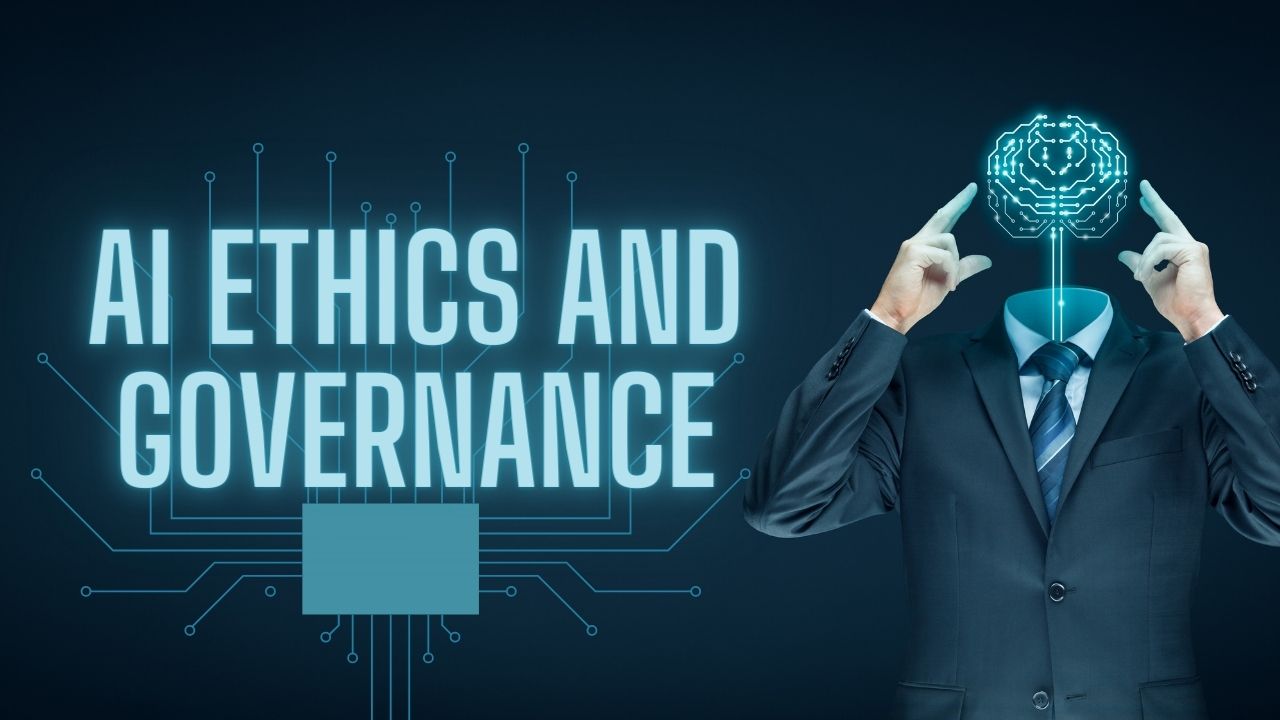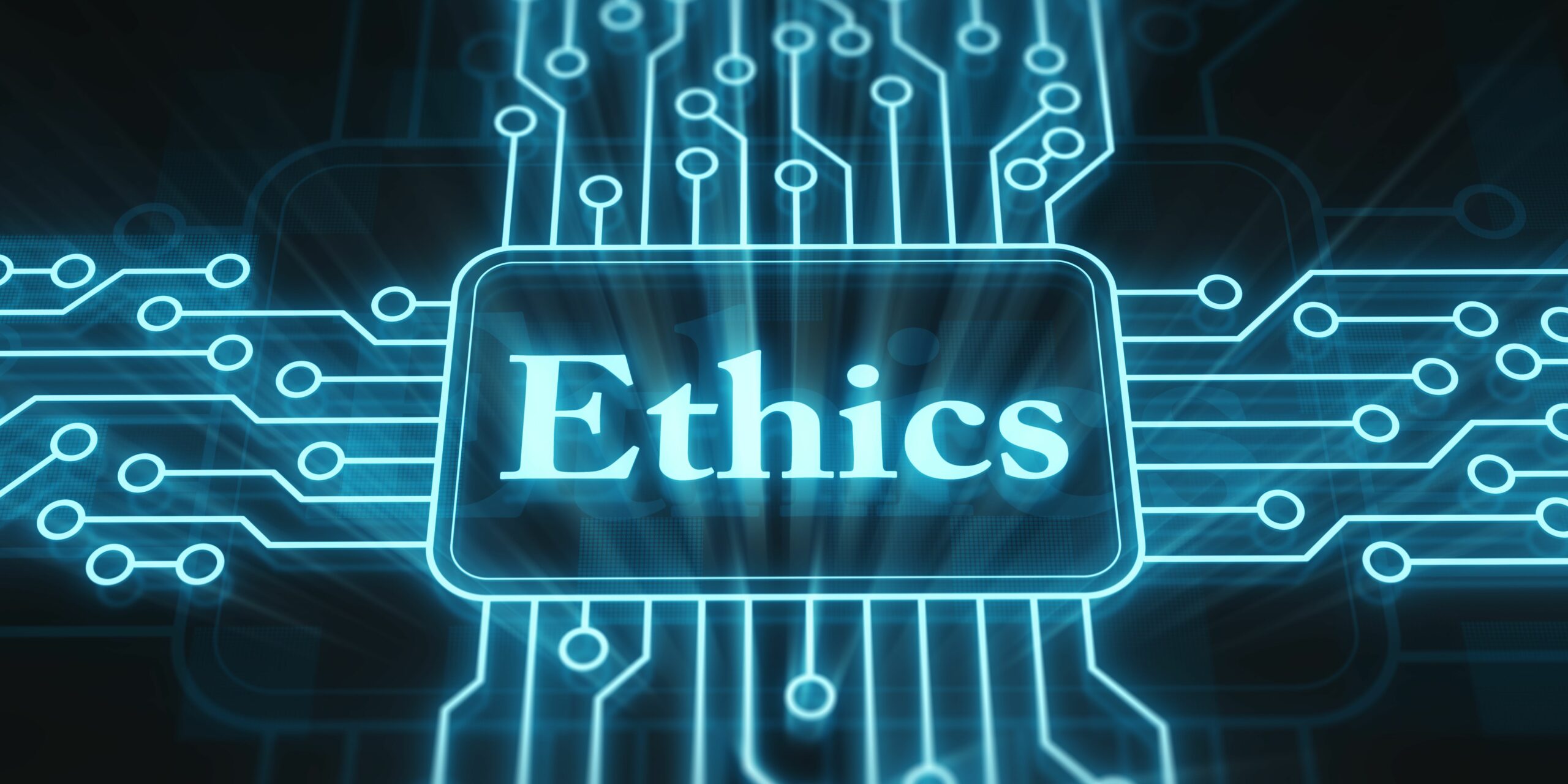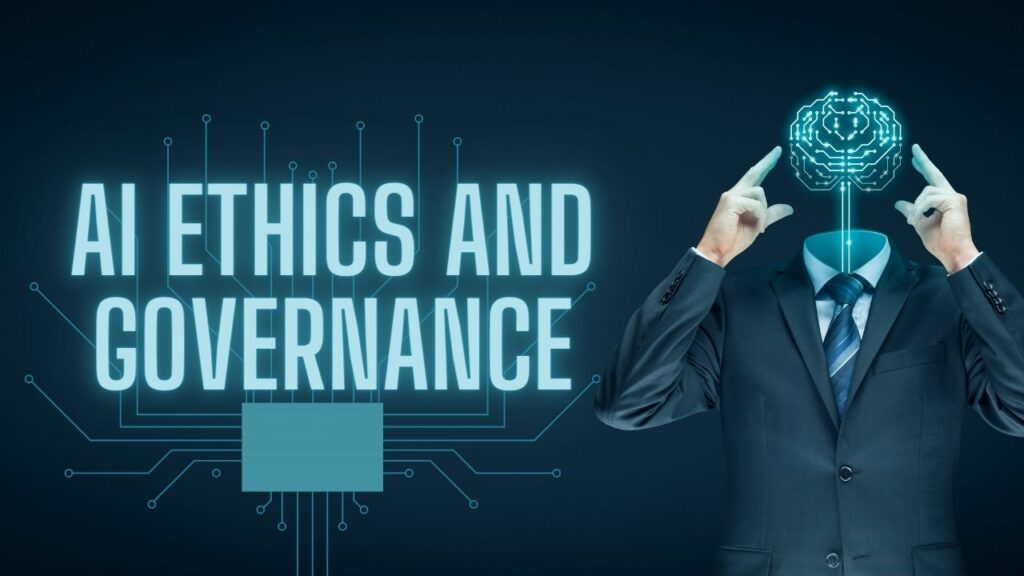 A wide range of significant problems regarding the societal effect, governance, and ethical implications of these artificial intelligence technologies remain largely unresolved. Therefore, it is important to hold discussions about its ethics and we should manage it. As the development, deployment, and capabilities of AI-based systems advance quickly.
A wide range of significant problems regarding the societal effect, governance, and ethical implications of these artificial intelligence technologies remain largely unresolved. Therefore, it is important to hold discussions about its ethics and we should manage it. As the development, deployment, and capabilities of AI-based systems advance quickly.
AI in business
Think about how deep learning algorithms used in modern machine learning operate. A black-box system is first created by the machine learning model. It then learns different data trends and patterns. The given input data and the related system behavior are connected in a way that the model learns and characterizes. Once trained, the model can simulate the behavior of the system for any fresh data inputs.
For example, a computer vision model to accurately categorize fresh cat photographs if you train it on cat images with the right image labels. Although the AI models can correctly categorize data patterns, this method may not be comprehensible and interpretable. A set of mathematical equations that roughly simulates the relationship or behavior of any system is, after all, what an AI model is.
It’s much more difficult to use artificial intelligence in a professional setting than it is to categorize cat pictures correctly. One cannot simply explain, defend, or justify your business operations if one relies on black-box outputs and results.
Beyond the technology itself, a fundamental component of AI ethics and governance is human governance. Business executives and employees will get specific attention. This can include how they plan to employ AI to address delicate business issues, or how their use of AI technologies may be in violation of the moral principles that support their organization’s reputation.
You might also like: What Is Explainable AI and Why Does It Matter?
How do you operationalize AI ethics and governance?
This is an important aspect for business executives to consider. It can provide insight into weighing the pros and cons between the recent advancements in AI technology and the potential risks of an AI going rogue or not being sufficiently human-like.
The majority of companies begin by making broad PR declarations, such as “we will never sell your data,” “user safety is our priority,” and “our tools will serve all customers equally, free of discrimination.” Yet unless it gets proper training for it, a black-box AI system making the decisions might not prioritize safety and ethics in the same way.
We will need to take several steps to operationalize AI ethics and governance. Businesses would benefit from planning out the AI-based strategies that they want to employ, together with understanding the different levels concerning AI ethics and AI safety, and more.
What is AI Governance?
In the past thirty years, the term “governance” has firmly established itself in the vocabulary of the corporate world, albeit it is frequently applied to a variety of situations and with varying degrees of meaning. Broadly speaking, governance refers to all governing procedures. It is the organization, upkeep, regulation, and frequently the allocation of responsibility of rules or acts.
We can apply this kind of definition to artificial intelligence technology. AI governance is about making AI understandable, ethical, and transparent. However, to different organizations or functions within enterprises, those three phrases may mean different things.
What is essential for all enterprises is to properly and thoughtfully design AI governance that is suitable for their work environments. Making sure that accountability for AI governance is unmistakable and that the necessary components are quantifiable is a crucial component of that.
Who should be responsible for AI Governance?
Every leader needs to be aware of the power of AI because data is essential to all corporate processes, consumer engagement, products, and supply chains. AI governance is a component of AI leadership: a new talent that is essential for all leaders to develop.
AI governance must be pertinent to and applicable to all organizational executives. Functional roles, on the other hand, are crucial to the implementation and ongoing development of an organization’s AI governance. The CEO or top leader of a government institution must have ultimate responsibility for the AI Governance charter and a defined division of labor inside the company. Secondly, the company’s audit committee must be responsible for controlling and auditing the type of data that will the AI software will be handling. You can delegate other aspects to other high-ranking officials, such as CFOs or CDOs.
It’s crucial to assign accountability for AI governance. No one is responsible if roles are not defined. If no one is in charge, the governance of AI will be at best subpar and, more likely, fail. For example, when the business uses data strategically and AI in all of its operations and products, both the firm’s underlying data and AI will constantly change or evolve. It is also conceivable that governments get more involved through legislation and legal regulations, and that auditing firms take on a new role as an independent party engaged in the ongoing assessment of AI governance.
What is AI Ethics?

AI ethics are a collection of rules that offer guidance on the creation and results of artificial intelligence. Humans have a variety of cognitive biases, including recency and confirmation bias. Which manifests in our behaviors and, consequently, in our data. AI ethics principles make the requirements for design, data, documentation, testing, and monitoring clear. During the entire lifetime of AI software and machine, these ideas are applicable.
Core principles of AI ethics
The AI strategy of business benefits greatly from ethical considerations in AI. It clarifies an organization’s expectations for AI use and even assesses whether an AI system is suitable for a certain task.
Prioritizing AI ethics and allocating adequate funds and resources are crucial for implementing a comprehensive AI governance strategy. Companies are often skilled at a number of routines and procedures. Such as allocating funds, purchasing technology, and employing employees. But they have not yet mastered turning AI ethical ideas into concrete actions. Making sure that this occurs is a crucial aspect of AI governance.
Goals of implementing AI ethics standards
We may refer to the implementation of AI ethical standards as responsible AI. Responsible AI must at the very least take the necessary steps to abide by all applicable laws.
The fundamental tenet of responsible AI is that it is the morally correct thing to do. Responsible AI supports the shared corporate mission of many firms to be a force for good. Responsible AI is in line with environmental, social, and governance (ESG) activities that these organizations are implementing to hold themselves to better standards.
What you need to know—ethical issues
Unfortunately, there are a number of possible problems that come with using AI for business that could put a company in jeopardy in terms of ethics. The absence of a built-in human values system in AI is an evident danger. Since AI is only a machine, it is not at fault. However, this does not mean that an AI’s output should remain subpar or harmful to the principles of a business.
You may observe high-profile instances of AI mistakenly delivering discriminatory results. For instance, a recent AI system for a large company’s job applications favored male applicants based on a faulty analysis of prior trends.
Given that substantial amounts of data are needed to train AI, serious privacy rights are also at risk. Although some of the biggest corporations in the world have been exposed for stealing data, any organizations using AI face the same risk.
You might also like: How AI Is Revolutionizing Sales Forecasting
What you need to do—practical measures for businesses
Deep, sophisticated business solutions will inevitably be needed to deal with problems brought on by very complex machines. We advise using the following governance steps to both limit the harm AI might do and take advantage of its advantages to help your particular sector.
1. Set up an AI taskforce and governance board

Businesses can benefit from creating a governance board that will be in charge of designing their AI ethical framework and supervising their AI strategy. A task force is another kind of group that can handle a business’s AI strategy and management.
2. Establish what AI ethics mean for your business

Establishing broad guidelines for your organization’s approach to AI ethics is beneficial. These guidelines can be utilized as a foundation to guarantee that all interactions with AI adhere to a business’s ideals. These must be relevant to the technologies utilized, while also particular to your business and sector. Every level of the company should institutionalize these values through leadership communications, conduct standards, training programs, and reward structures. Any ethical questions that employees may have should be encouraged to be brought up.
3. Conduct AI ethics risk assessment and create an AI governance plan

To pinpoint potential threats and prevent ethical problems, it is important to complete an extensive AI ethics risk assessment. This can entail making adjustments to one’s governance procedures. You should develop an AI governance strategy as the result of these efforts. Outlining both the long-term direction for AI as well as short- and medium-term objectives and recommendations. The plan should be regularly updated, and ownership of the plan should be held by a qualified individual.
4. Monitor the impact of AI

An ethical problem with AI may still exist even with the strongest governance procedures in the world. It’s crucial to evaluate potential dangers before putting an AI system into place and to keep an eye on its effects in order to spot problems and stop damage as soon as feasible.
The possibility of employment displacement is a crucial aspect to take into account. A business’s Human Resources team should be involved early on to help with workforce adaptation and/or retraining in the event that job duties change.
5. Enhance data sets and data privacy

Whatever kind of AI you employ, make sure it has the most comprehensive, up-to-date, and representative data sets possible. This will increase its chances of succeeding and lessen the possibility of algorithmic bias and prejudice. You may use several internet techniques to identify and counteract this prejudice. Also, make sure that privacy and data protection policies are reliable and open. Customers should be able to quickly see how their data is being handled, particularly when it comes to AI.
6. Adopt an ethical approach to AI providers

Take an ethical stance toward third-party AI providers by conducting due diligence on potential business partners and inquiring about their use of AI to determine whether they uphold ethical standards comparable to your own.
You might also like: AI in Quality Control: Improving Productivity and Efficiency
FAQs
What are the ethics of Artificial Intelligence?
When working with governments all around the world to create a uniform framework to handle these ethical challenges, it is crucial to strike a balance between allowing engineers to innovate and advancing this technology.
In the subject of tackling ethical challenges with AI, inclusion and placing people’s safety as a top priority are critical topics to cover.
What is the role of ethics in artificial intelligence?
The ethical development of all AI-driven technology is essential, and industry self-regulation will be more effective than any governmental effort. These AI-based decisions should be put under continuous supervision and always have an explanation available. Data is the lifeblood of AI systems, so we must carefully regulate the collection and use of consumer data, particularly in expansive commercial systems.
What are the ethics of AI and governance?
The ethics of AI and governance entail that moral ideals are promoted, human accountability and comprehension are made possible, and ethical AI behaves as intended.
What are the ethical implications of creating an AI?
Analyzing how and whether ethical considerations have been included in AI-driven decision-making is essential. This relates to the manner in which and to what extent the values and viewpoints of the relevant parties have been considered in the design of the decision-making algorithm.





